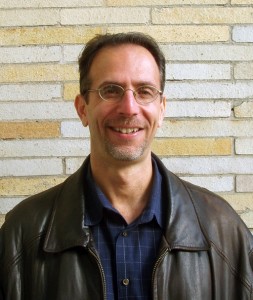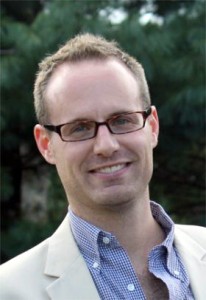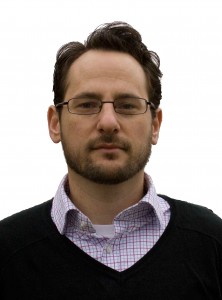Presenters update:
FOR PRESENTERS
April 19: Please visit this page for up-to-the-minute details pertaining to your presentation
April 3: A letter of acceptance has gone out to an impressive 32 individual and group presentations that were submitted within the deadline period. Further details, specific times, groups and presentation lengths will follow by April 18. Please contact organizers listed on the letter if questions remain.
About our Presenters
Morning Keynote Topic: “Where Are We Now? How Did We Get Here & What Happens Next?” Howard Wach, CUNY Academic Affairs Faculty Fellow,
Carman Hall B04 Lecture Hall 10 am
It’s never been easy for educators to orient themselves in a perpetually changing technology environment. How should we view this landscape today? If our commitment is to teaching and learning, how should we pursue that commitment now? Where should we ground ourselves in a technology world which seems to never stop moving?
 Howard Wach is currently a Faculty Fellow at the CUNY Central Office of Academic Affairs. Dr. Wach joined the History Department at Bronx Community College in 1998. His roles at BCC have included directing the Office of Instructional Technology (now the Center for Teaching, Learning, and Technology) from 2007 to 2011, and serving as Interim Vice President of Academic Affairs in 2011-2012.
Howard Wach is currently a Faculty Fellow at the CUNY Central Office of Academic Affairs. Dr. Wach joined the History Department at Bronx Community College in 1998. His roles at BCC have included directing the Office of Instructional Technology (now the Center for Teaching, Learning, and Technology) from 2007 to 2011, and serving as Interim Vice President of Academic Affairs in 2011-2012.
Afternoon Lunch Keynote Topic:
“Blended Learning as a Driver of College and Career Readiness”
Michael Preston, Director of Blended Learning Strategy for the NYC Department of Education Carman Hall B04 1:15 pm
“College and career readiness” is a clarion call in NYC public schools, where high school graduation rates have increased steadily over the past 10 years, but college persistence and completion rates have not. During this working session, we’ll review the NYC Department of Education’s College and Career Readiness Benchmarks and explore how blended and online learning can be used to make explicit and support specific knowledge, skills, and behaviors that lead to postsecondary success.
 Michael Preston is the Director of Blended Learning Strategy for the NYC Department of Education’s Office of Postsecondary Readiness, where he directs programs that employ technology and student-centered learning as a framework for key shifts in curriculum, teaching, and assessment. Previously, he worked at the Columbia Center for New Media Teaching and Learning, a service organization within Columbia University that supports faculty use of technology for instruction, and at New Visions for Public Schools, a nonprofit organization dedicated to public education reform in New York City. Michael received a Ph.D. in educational psychology from Teachers College, Columbia University, and a B.A. in East Asian studies from Harvard University.
Michael Preston is the Director of Blended Learning Strategy for the NYC Department of Education’s Office of Postsecondary Readiness, where he directs programs that employ technology and student-centered learning as a framework for key shifts in curriculum, teaching, and assessment. Previously, he worked at the Columbia Center for New Media Teaching and Learning, a service organization within Columbia University that supports faculty use of technology for instruction, and at New Visions for Public Schools, a nonprofit organization dedicated to public education reform in New York City. Michael received a Ph.D. in educational psychology from Teachers College, Columbia University, and a B.A. in East Asian studies from Harvard University.
Afternoon Plenary Topic: “Developing Social, Networked, Open-Source Classrooms and Communities”
Afternoon Plenary Presenters:
Jessie Daniels, Professor of Urban Public Health, Hunter College and the Graduate Center
Matthew K. Gold, Assistant Professor of English at New York City College of Technology and CUNY Graduate Center
Carman Hall B04 Auditorium 3 pm
Jessie Daniels and Matthew K. Gold, alongside Chase F. Robinson, Provost of the Graduate Center, are principal investigators for Just Publics@365, a project to expand the social-media reach of academics working on social-justice issues. The project is supported by a $550,000 grant awarded by the Ford Foundation, and has spawned CUNY’s first ‘POOC’ (Participatory Open Online Course) entitled: Reassessing Inequality and Reimagining the 21st Century: East Harlem Focus. In Jessie’s words, Just Publics@365 seeks to “move conversations that happen within the ivory tower of academia into the wider world where they have broader impact,”
 Jessie Daniels is Professor, Urban Public Health Hunter College and the Graduate Center and an internationally recognized expert on Internet manifestations of racism. She is the author of two books about race and various forms of media, White Lies (Routledge, 1997) and Cyber Racism (Rowman & Littlefield, 2009), as well as dozens of peer-reviewed articles in journals such as New Media & Society, Gender & Society, American Journal of Public Health, and Women’s Studies Quarterly. Since 2007, Daniels has maintained a scholarly blog, RacismReview (with Joe R. Feagin), which regularly gets 200,000 unique visitors each month and has received well over two million visitors since it began. Her current work focuses on the ways gender, sexuality, race, and political economy influence feminist blogging; a recent piece about this research appears in the edited volume, Cyberfeminism 2.0 (Peter Lang, 2012).
Jessie Daniels is Professor, Urban Public Health Hunter College and the Graduate Center and an internationally recognized expert on Internet manifestations of racism. She is the author of two books about race and various forms of media, White Lies (Routledge, 1997) and Cyber Racism (Rowman & Littlefield, 2009), as well as dozens of peer-reviewed articles in journals such as New Media & Society, Gender & Society, American Journal of Public Health, and Women’s Studies Quarterly. Since 2007, Daniels has maintained a scholarly blog, RacismReview (with Joe R. Feagin), which regularly gets 200,000 unique visitors each month and has received well over two million visitors since it began. Her current work focuses on the ways gender, sexuality, race, and political economy influence feminist blogging; a recent piece about this research appears in the edited volume, Cyberfeminism 2.0 (Peter Lang, 2012).
She has been awarded an Andrew W. Mellon Fellowship for 2012-2013. Forbes magazine recently named her one of “20 Inspiring Women to Follow on Twitter.” You can find her there at: @JessieNYC.
 Matthew K. Gold is Associate Professor of English and Digital Humanities at City Tech and the Graduate Center, CUNY. At the Graduate Center, he serves as Advisor to the Provost for Master’s Programs and Digital Initiatives, Acting Executive Officer of the M.A.Program in Liberal Studies (MALS), Director of the CUNY Academic Commons, Co-Director of the CUNY Digital Humanities Initiative, and Director of the “Looking for Whitman” project.
Matthew K. Gold is Associate Professor of English and Digital Humanities at City Tech and the Graduate Center, CUNY. At the Graduate Center, he serves as Advisor to the Provost for Master’s Programs and Digital Initiatives, Acting Executive Officer of the M.A.Program in Liberal Studies (MALS), Director of the CUNY Academic Commons, Co-Director of the CUNY Digital Humanities Initiative, and Director of the “Looking for Whitman” project.
He teaches in both the MALS program and the Doctoral Certificate Program in Interactive Technology and Pedagogy. He is editor of Debates in the Digital Humanities (University of Minnesota, 2012) and has published work in The Journal of Modern Literature, Kairos, and On the Horizon, as well as in the edited collections From A to <A>:Keywords of Markup (University of Minnesota, 2010) and Learning Through Digital Media: Experiments in Technology and Pedagogy (iDC, 2010). His digital humanities projects, including “Looking for Whitman” and “Commons In A Box,” have been supported by grants from the NEH Office of Digital Humanities, the National Science Foundation, the U.S. Department of Education, the Alfred P. Sloan Foundation, and the Ford Foundation.
He was recently elected to the Executive Council of the Association for Computers and the Humanities. He can be found at mkgold.net and on Twitter @mkgold.
Matt’s thoughts on the social, networked open source classroom, as discussed in a recent article, speak clearly to his teaching philosophy: “We were no longer studying an important work of twentieth-century literature within the narrow context of my syllabus; instead, we had become part of a conversation that involved the broader reading public. As the professor, I was displaced from the center of that conversation, which became more open, distributed and student-driven than it had been before.”


